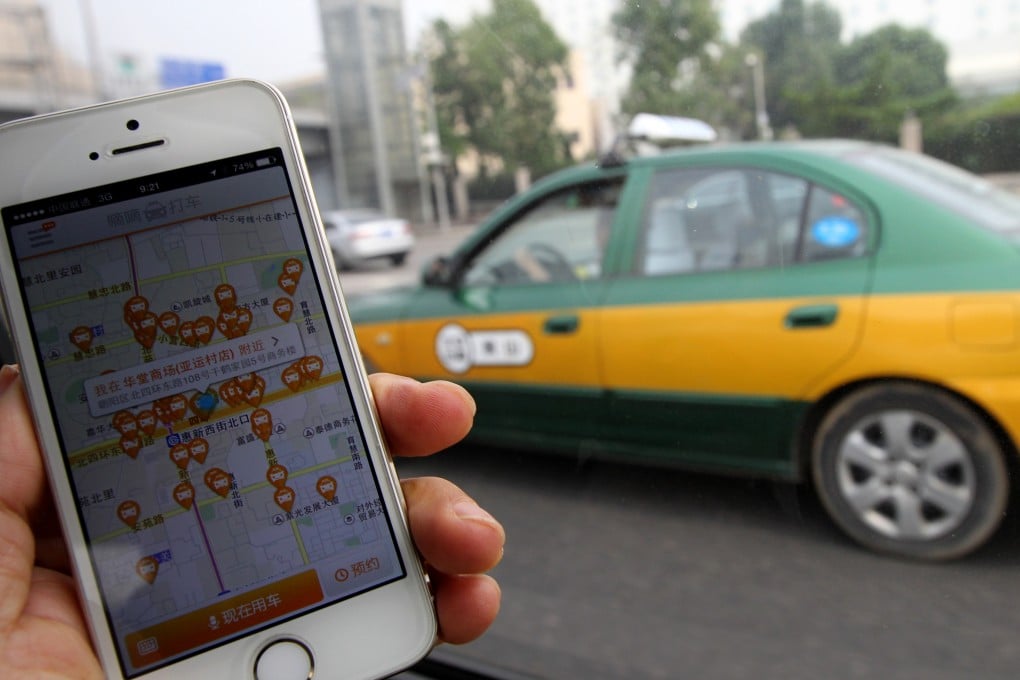Advertisement
China’s top car-hailing app Didi Kuaidi rebrands itself with new logo, name in bid to shake off ‘illegal taxi service’ stigma amid crackdown
Reading Time:3 minutes
Why you can trust SCMP

He Huifengin Guangdong
Didi Kuaidi, China’s market-leading car-hailing competitor to Uber Technologies, launched its new logo this week as it continues on its project of becoming the world’s largest one-stop mobile transportation network, it said.
The news comes in the same week the company announced it was close to raising about US$3 billion from investors, US$1 billion more than its initial target, suggesting investors remain fired up by its prospects as it continues to try and tamp down a backlash from established taxi companies amid a government crackdown.
Advertisement
Rival Uber, which said this weeks it plans to expand to 100 Chinese cities over the next year, claims to have raised about US$1.2 billion in new financing.
Didi Kuaidi's new logo uses a capitalised “D”, rendered in a way that resembles a smiling face to present a friendlier image and underscore its goal of making journeys more efficient, accessible and comfortable, it said in a statement Wednesday.
Advertisement
Select Voice
Select Speed
1.00x